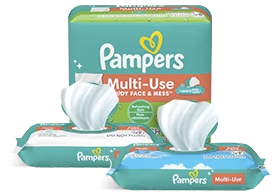How to Relieve Baby Constipation: Signs, Causes, & Solutions
While babies have varying bowel movement patterns, constipation in newborns and older babies may occasionally occur. While it’s normal for your baby to go a day or two without a bowel movement, you might wonder whether they’re constipated—especially if their poops become less frequent or seem difficult to pass. This article will cover the signs of constipation in newborns, potential causes, and solutions to help your baby feel more comfortable.
What Is Constipation in Babies?
Understanding baby constipation starts with knowing what normal bowel movements look like for infants. Every baby is different, and there is a wide range of what’s considered normal when it comes to pooping. Many babies will have a bowel movement after each feeding in the first few weeks of life.
After about three to six weeks, some breastfed babies may poop less often—sometimes as little as once a week. This happens because breast milk creates very little solid waste that needs to be eliminated. Formula-fed babies, on the other hand, typically have a bowel movement once a day or every other day.
When everything is functioning normally, your little one’s stools should be soft. However, if your baby is producing hard, dry bowel movements that seem difficult or painful to pass, they may be experiencing constipation. In addition to firmer stools, you may notice their poops are less frequent than usual, which may also be a sign of constipation.
What Are the Signs and Symptoms of Infant Constipation?
If you're wondering how to tell if your baby is constipated, there are a few key signs to look out for:
Your baby’s bowel movements are hard and dry, often resembling small, round pellets.
They may arch their back, strain, or cry while trying to poop. While it’s normal for babies to strain when passing a bowel movement—since they are usually lying on their back—if their poop is still soft after straining, they are likely not constipated.
Your baby’s poops are less frequent than usual, especially if they seem uncomfortable or fussy.
If you notice any of these newborn constipation symptoms, you may want to try some gentle methods to help your little one feel more comfortable.
What Causes Your Baby's Constipation?
Constipation in newborns or older babies is uncommon, especially if they are still on an exclusive milk diet. However, as your baby grows and their diet changes, their bowel movements may change too.
One of the most common causes of constipation in babies is introducing solid foods. As their digestive system adjusts to new textures and nutrients, their stools may become firmer and less frequent. Some babies also have naturally slower bowel patterns, which may not necessarily indicate a problem.
If you’re wondering why baby constipation occurs, consider recent dietary changes, including the introduction of new foods or different formula types, as these may impact digestion.
In very rare cases, constipation may be linked to an underlying condition, such as Hirschsprung's disease, hypothyroidism, or cystic fibrosis. If you have concerns about your baby’s symptoms or their constipation persists, consult their healthcare provider for guidance.
Teething and Constipation
When your baby is teething, you might wonder if there's a link between teething and constipation in newborns and older babies. While teething itself doesn't directly cause baby constipation, some babies may eat less due to gum discomfort. Ensuring your little one stays hydrated and offering soothing teething remedies may help maintain regularity.
Formula Feeding and Constipation
If you're formula feeding, you might wonder whether formula is causing your baby’s constipation. Some babies may experience constipation with formula milk, as certain formulas may be harder to digest. If your baby seems uncomfortable, consider discussing with your healthcare provider about trying a different formula. They may recommend a better formula for infants with constipation to suit your baby's needs.
Breastfeeding and Constipation
For those breastfeeding their babies, constipation is less common since breast milk is easily digested. However, if you're concerned about why your breastfed baby is constipated, observe their feeding patterns and consult your baby’s healthcare provider. They may offer guidance tailored to your little one’s situation.
Remember, each baby is unique. If you have concerns about your little one's bowel movements, it's always best to consult with your healthcare provider for personalized advice.
How Long Can Your Baby Go Without Pooping?
The frequency of your baby’s bowel movements may vary from day to day, and every baby is different. Formula-fed babies typically poop at least once a day, but it’s not uncommon for them to go a day or two without pooping without being constipated.
In the early weeks, breastfed babies may poop more often since breast milk is easily digested, but at around 3 to 6 weeks old, breastfed babies may start having fewer bowel movements, with as little as one or two per week, but still not be constipated.
How to Relieve Your Baby's Constipation
If your baby is experiencing constipation, there are gentle and effective ways to help them feel more comfortable. Some at-home techniques may provide quick relief, while other solutions may require guidance from your little one’s healthcare provider.
Whether you’re looking to learn how to relieve constipation in newborns and babies quickly or searching for an infant constipation solution, there are several approaches to consider.
Let’s explore these approaches, from home remedies to more specialized options, so you can find the best fit for your baby’s needs.
Home remedies
Once your baby has started on solid foods, there are some simple constipation solutions you may try to help get things moving. It’s always best to consult your healthcare provider, who may recommend introducing the following adjustments:
Water. If your little one is over 6 months old ( the age they begin to drink water), offer a little water in a sippy cup with their meals. This shouldn’t replace breast milk or formula, however.
Fruit juice. A few millilitres of 100% fruit juice, such as apple, pear, or prune, may also help your baby. These juices contain sorbitol, which works like a natural laxative.
Fibre-rich fruits and vegetables. For babies who have begun eating solids, pureed foods like prunes, pears, peaches, and peas are great foods to help your little one poop due to their higher fibre content.
Infant cereals. Once your baby eats solid foods, try feeding them whole-wheat, barley, or multigrain cereal. These three types contain more fibre than rice cereal and may help get things moving.
Suppositories
If dietary adjustments haven't eased your baby's constipation, your healthcare provider might suggest using baby suppositories. These are small, solid medications inserted into your baby's rectum to help stimulate a bowel movement. Glycerin suppositories work by drawing water into the intestines, softening the stool, and typically producing a bowel movement within 15 to 60 minutes.
It's important to use these baby suppositories only occasionally and under medical supervision, as overuse may lead to dependency or irritation. Always follow your healthcare provider's instructions regarding dosage and frequency to ensure safe and effective relief for your baby's constipation.
Laxatives & Enema
Before administering laxatives, mineral oil, or enemas for constipation in newborns and older babies, consult their healthcare provider to ensure safety and appropriateness.
Positions to Help Your Baby Poop
Certain gentle positions to help your baby poop may help encourage their bowel movements and relieve discomfort. Here are a few you can try:
Tummy massage. Gently rub your baby's belly in a clockwise motion to stimulate digestion.
Bicycle legs. Lay your baby on their back and gently move their legs in a bicycling motion. This may help stimulate their digestive system and make it easier for them to poop.
Squatting position. Hold your baby's knees to their chest to mimic a squat position, then release. This position may help relax the rectal muscles, making it easier to pass stools.
When Should You Contact Your Baby’s Healthcare Provider?
It’s natural to worry about your baby’s constipation. While occasional constipation in newborns and older babies is common, certain symptoms may indicate it’s time to seek medical advice. Contact your baby’s healthcare provider if they experience:
Vomiting
Unusual tiredness or weakness
Loss of appetite
A swollen belly
Blood in their poop.
If you have concerns about baby constipation or your little one seems uncomfortable, their healthcare provider can help determine the best baby constipation solution for their needs.
FAQS AT A GLANCE
Avoid the use of over-the-counter laxatives or enemas without consulting your baby's healthcare provider to help keep your little one safe. Stick to gentle methods, such as tummy massages or dietary adjustments, to relieve constipation naturally. Always consult a provider before trying any new remedy.
The Bottom Line
Constipation in newborns and babies is more likely to occur after they begin eating solid foods, typically around 6 months of age. As their digestive system adjusts to new foods, occasional constipation may happen.
Otherwise, constipation in babies is fairly uncommon, so if your baby hasn’t had a bowel movement in a few days, they may not be constipated. Watching for symptoms like pellet-like poop may help determine if constipation is an issue.
Although constipation may make your baby uncomfortable, especially when straining to poop, simple remedies often provide relief. Adjustments in their diet, like introducing fibre-rich foods or offering small amounts of water, may ease constipation. If these changes don’t work, contact your little one’s healthcare provider, who may suggest trying a suppository or another gentle treatment.
To make diapering and everyday essentials easier on your budget, check out the Pampers Rewards app. The app offers exclusive discounts and digital offers that can support you in providing the best care for your little one.
How We Wrote This Article The information in this article is based on expert advice found in trusted medical and government sources, such as the American Academy of Pediatrics and the American College of Obstetricians and Gynecologists. You can find a full list of sources used for this article below. The content on this page should not replace professional medical advice. Always consult medical professionals for full diagnosis and treatment.
Join Pampers Club and get:






